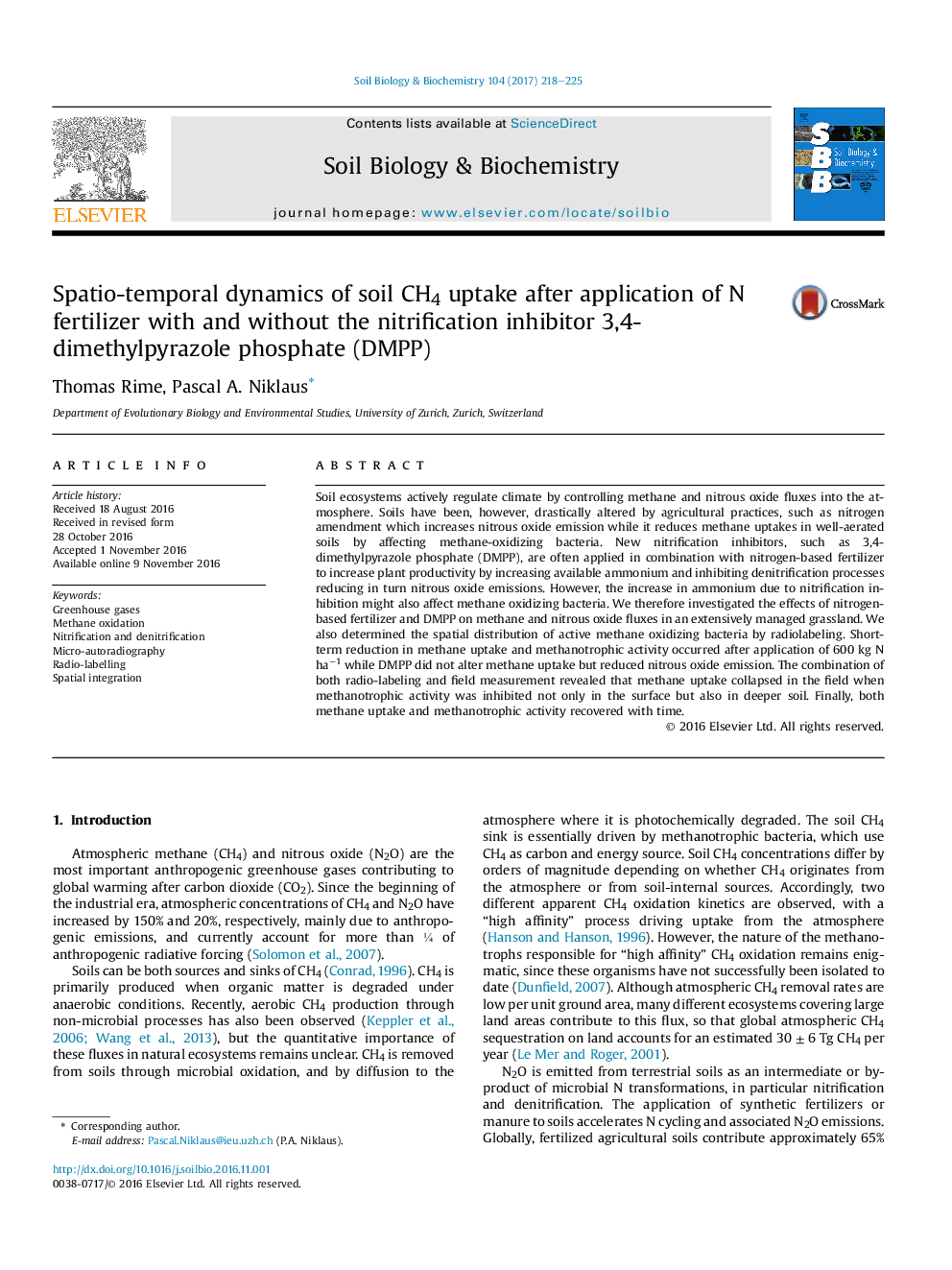| Article ID | Journal | Published Year | Pages | File Type |
|---|---|---|---|---|
| 5516462 | Soil Biology and Biochemistry | 2017 | 8 Pages |
â¢Nitrogen fertilizer inhibits CH4 oxidation but effects differ with scale.â¢14CH4 tracer and microautoradiography reveal spatio-temporal dynamics of inhibition.â¢Nitrification inhibitors affect N2O fluxes but not CH4 oxidation.â¢The spatial integration of soil domains stabilizes soil function after disturbance.
Soil ecosystems actively regulate climate by controlling methane and nitrous oxide fluxes into the atmosphere. Soils have been, however, drastically altered by agricultural practices, such as nitrogen amendment which increases nitrous oxide emission while it reduces methane uptakes in well-aerated soils by affecting methane-oxidizing bacteria. New nitrification inhibitors, such as 3,4-dimethylpyrazole phosphate (DMPP), are often applied in combination with nitrogen-based fertilizer to increase plant productivity by increasing available ammonium and inhibiting denitrification processes reducing in turn nitrous oxide emissions. However, the increase in ammonium due to nitrification inhibition might also affect methane oxidizing bacteria. We therefore investigated the effects of nitrogen-based fertilizer and DMPP on methane and nitrous oxide fluxes in an extensively managed grassland. We also determined the spatial distribution of active methane oxidizing bacteria by radiolabeling. Short-term reduction in methane uptake and methanotrophic activity occurred after application of 600 kg N haâ1 while DMPP did not alter methane uptake but reduced nitrous oxide emission. The combination of both radio-labeling and field measurement revealed that methane uptake collapsed in the field when methanotrophic activity was inhibited not only in the surface but also in deeper soil. Finally, both methane uptake and methanotrophic activity recovered with time.
